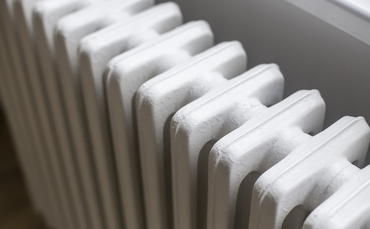

Government urged to 'listen to the economics and science' ahead of making final decision on whether to back wider roll out hydrogen heating systems
Replacing fossil gas with hydrogen in home heating systems could result in energy bills almost doubling over the coming three decades, new research has warned.
A report produced by energy consultancy Cornwall Insight on behalf of the pro-renewables MCS Charitable Foundation forecast that using hydrogen for home heating could be between 70 and 90 per cent more expensive than fossil gas.
Jitendra Patel, senior consultant at Cornwall Insight, said the results showed it was "simply uneconomical" to use a 100 per cent hydrogen fuel for heating homes.
The research is published as the government mulls its options for decarbonising home heating, with a final decision on rolling out a 20 per cent hydrogen blend in the UK's home heating network from 2026 onwards expected to be made next year.
On Friday in the House of Commons, Business and Energy Minister Jacob Rees-Mogg signalled his support for transitioning homes on to hydrogen heating. "I think hydrogen is ultimately the silver bullet," he said. "I can see how you create it from renewable sources, because you have the wind power when people aren't drawing from the electricity system. We can use it as an effective battery and it can then, with some adjustments, be piped through to people's houses to heat them during the winter."
Advocates of hydrogen heating maintain that supplies of low carbon hydrogen are expected to increase rapidly in the coming years and switching gas networks to run on the zero carbon gas could provide a less disruptive means of decarbonising heating than requiring millions of homes to switch to entirely new technologies for heating and cooking. They also predict that the cost of hydrogen could fall significantly in the coming years as new green hydrogen plants capable of harnessing low cost renewable power to produce hydrogen come online.
But the use of hydrogen to decarbonise heating remains contentious. Energy experts and the United Nations have argued that heating is one of the lowest valued applications for hydrogen, warning the limited reserves of the low carbon fuel should be reserved for industries that are less amenable to electrification, such as shipping, steelmaking, chemicals production, and long-haul aviation.
Moreover, critics have warned the conversion of the gas grid to enable a hydrogen-fossil fuel mix or pure hydrogen gas could ultimately slow the decarbonisation of buildings in the UK, because it would "lock in" fossil gas and the infrastructure required to pump it to homes around the country for the decades to come, while potentially discouraging investment in zero and low carbon heating solutions, such as electric heat pumps and heat networks.
There are also concerns about the environmental credentials of 'blue hydrogen', which is produced using fossil gas and carbon capture and storage .
MCS Charitable Foundation, a charity whose work focuses on decarbonising homes, heat, and energy, said the findings set out in Cornwall Insight's report added weight to the "fast-growing body of evidence" that showed the low carbon fuel is "economically and environmentally unviable as a source of home heating".
Dr Richard Hauxwell-Baldwin, the group's research and campaigns manager, said pursuing hydrogen for home heating would lock in high energy prices for a generation.
"At a time when we need policies in place to cut both bills and carbon, pursuing hydrogen for home heating seems a strange policy choice," he said. "The fossil fuel industry is lobbying hard to get hydrogen pumped into homes around the country as it would allow them to continue their otherwise unsustainable businesses. But this would be a disaster for already hard-pressed households and the environment."
The report authors conclude it would be better for government to invest in other technologies for the decarbonisation of heat, such as heat pumps and heat networks.
Commenting on the findings, Juliet Philips, senior policy advisor at environmental think tank E3G, said: "We are in a cost-of-living crisis caused by exposure to international fossil fuel markets. In order to bring down bills permanently, we need to invest in solutions which permanently get us off gas - such as home insulation, heat pumps and renewables."
Philips urged the government to "listen to the economics and science" ahead of making any decisions for hydrogen for heating, noting that it would be consumers that would end up footing the bill if they ignored the evidence.
The Department for Business, Energy and Industrial Strategy (BEIS) was considering a request for comment at the time of going to press.
* This article was originally published here
* This article was originally published here







0 comments:
Post a Comment